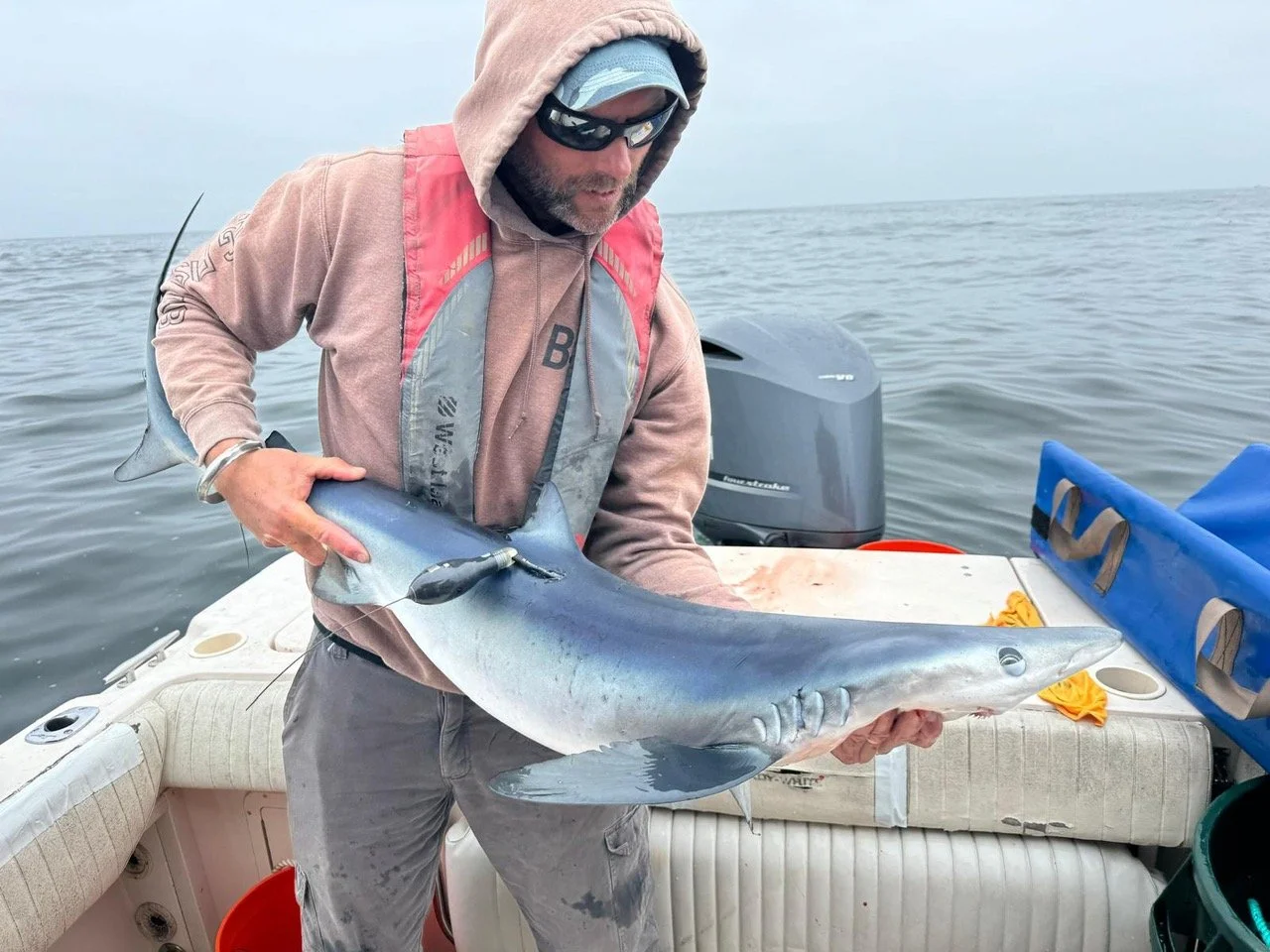Dr. Taylor Chapple
Shark-Infested Waters: Why That’s a Good Thing
Sharks are an iconic global species with a reputation often based on fiction. Dr Chapple from the Big Fish Lab at Oregon State University, the leading shark research lab in the Pacific Northwest, has studied sharks around the world for over 20 years. He will share the BFL’s research on sharks in the Pacific Northwest and around the globe, replacing fiction with fact.
Over the past 15 years, Taylor has been studying sharks and other large marine predators around the world focused on their movements, behaviors and population dynamics. From South Africa to Australia to California, using state of the art technology, he electronically tags animals to gain insights into their lives when we aren’t there to observe them. At OSU, Taylor studies the sharks off our coasts and works with local communities to better understand sharks in Oregon. Relatively little is known about how White, Salmon and Sevengill sharks affect our coastal ecosystems, but Taylor and the BFL plan to change that.
Taylor grew up in the great state of Ohio on the shores of Lake Erie. He received his BA from Boston University in biology with a concentration in marine science in 2001. Taylor then worked designing experimental fishing nets to limit bycatch of New England and taught marine science aboard a sailboat in the Puget Sound. In 2002 he first began working with sharks off the coasts of Florida and throughout the Gulf of Mexico. Taylor received his Ph.D in 2009 from the University of California, Davis, developing ways to estimate and assess shark species with little data. At UCD his work focused on the Common Thresher shark and the White shark. In 2010 Taylor began an appointment with the Max Planck Institute in Germany, studying the energetics and behavior of highly nomadic species. He also studied how sharks navigate by developing a magnetic tag, which can manipulate the ambient magnetic field around a shark. In 2012 Taylor began a second post-doctoral appointment with Hopkins Marine Station of Stanford University. At Stanford Taylor worked on a continuing assessment of white sharks as well as their behavior and movements. Taylor started at OSU in 2019 and currently runs the BFL at OSU’s Hatfield Marine Science Center.

